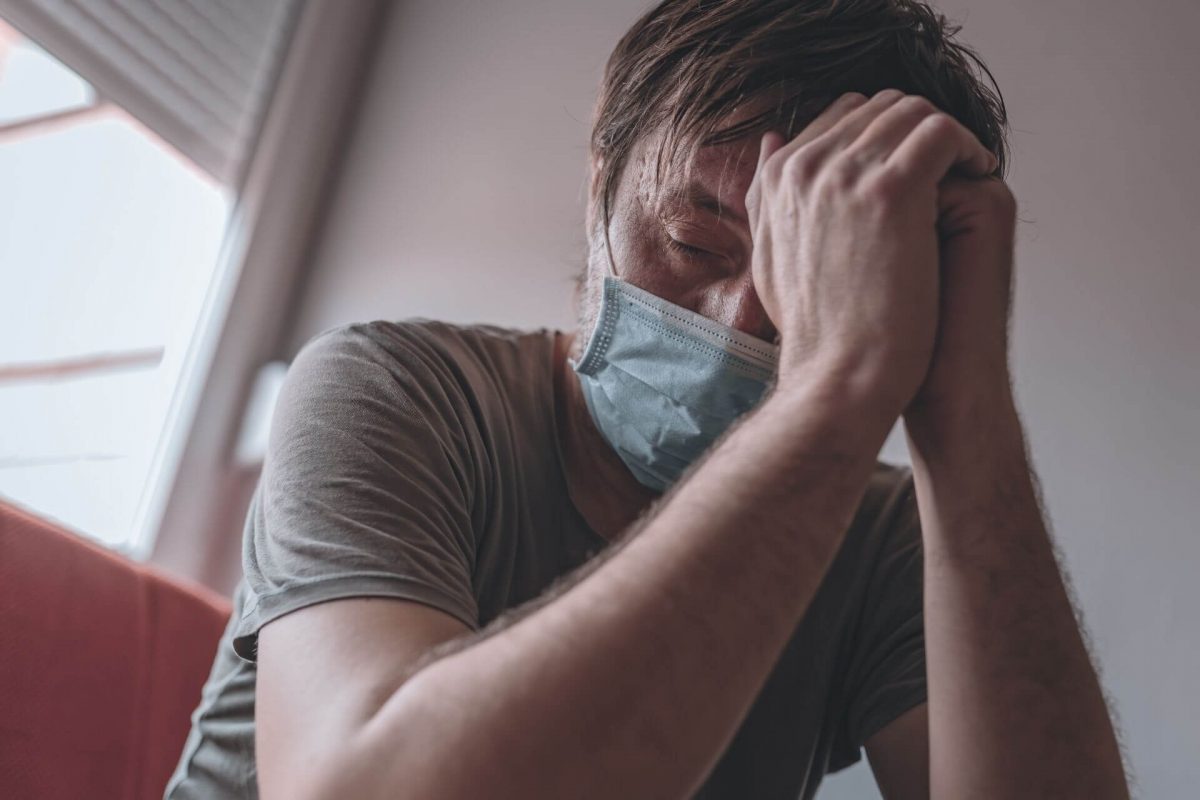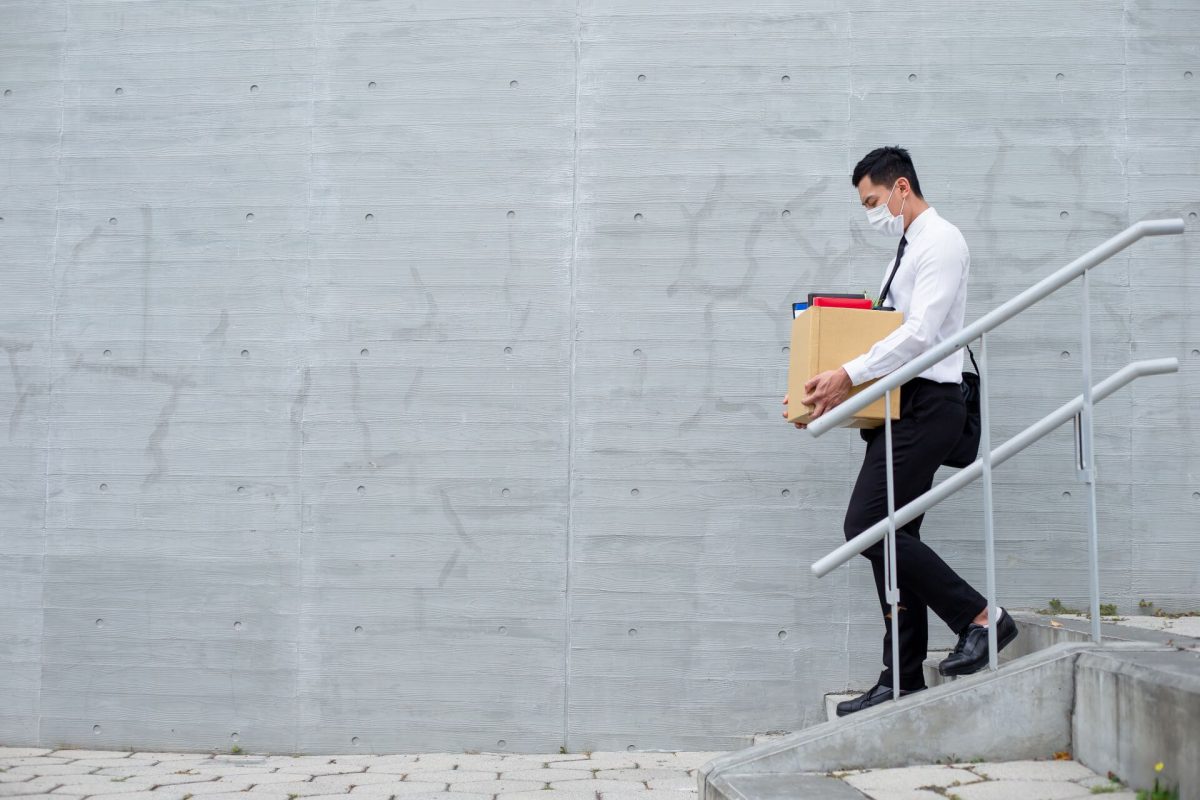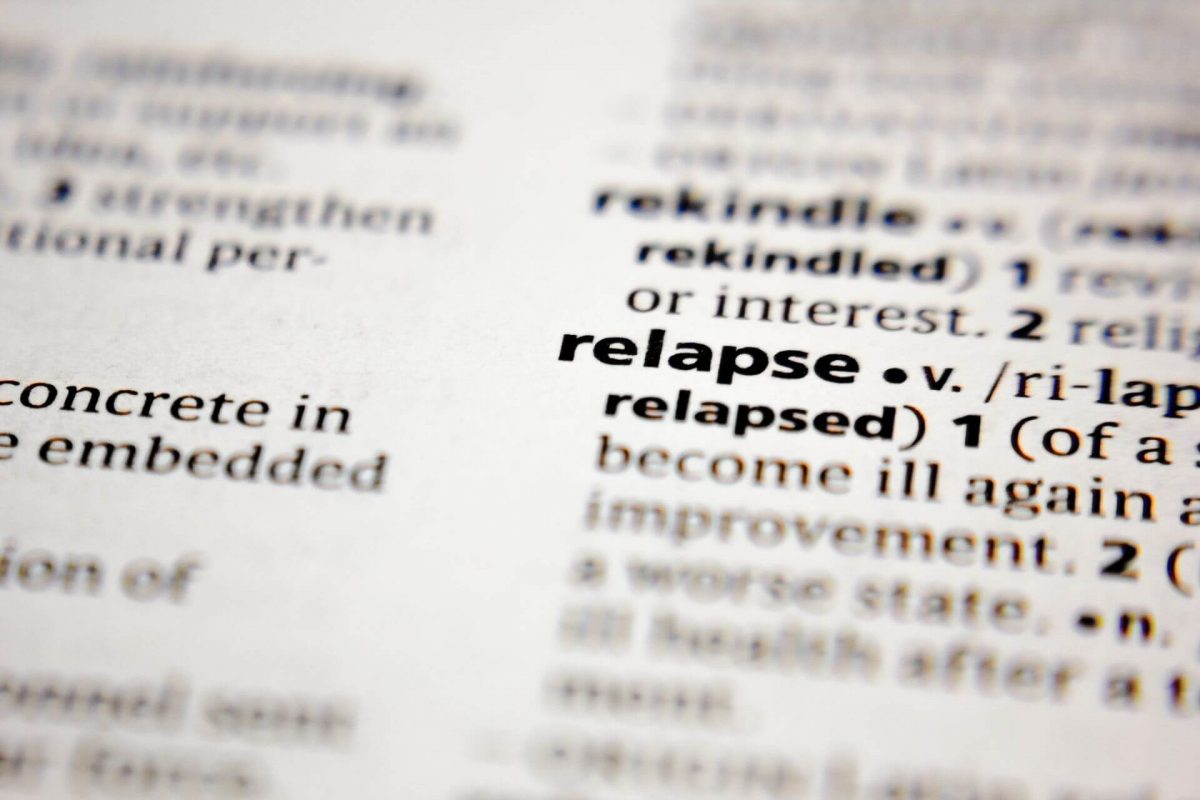Many people have suffered during the Covid-19 pandemic. One group of particular concern is people who are dealing with addiction and working hard at their recovery. Due to imposed lockdowns and social distancing, people in addiction recovery have been forced to transition from face-to-face treatment to online therapy.
There’s no reason the pandemic should derail a loved one’s efforts to live a sober or drug-free life if they’re willing to accept the help that’s available. We look at what triggers relapse in these uncertain times, warning signs of relapse and resources available to help someone in addiction recovery.

Stressors that trigger addiction relapse in Covid-19 pandemic
Pandemic anxiety
The Covid-19 took us by complete surprise and it was an unprecedented situation for everyone around the world. We were bombarded with conflicting statements about the pandemic and most of us were left reeling; wondering if our lives would ever return to normal.
This would have created anxiety for even the most level-headed people in society but for those with co-occurring mental disorders and those in addiction recovery, the stress could definitely be a trigger for relapse.

Social isolation
Social distancing and isolation in lockdown may also have had an adverse effect on those going through addiction recovery. Boredom, loneliness and lack of human contact would be the main contributing factors of relapse while battling with enforced isolation. Being stuck at home for weeks on end with family members that you might not get on with and in confined spaces was also very trying.

Unemployment
With so many people being retrenched or losing their income because businesses have shut down, financial strain is a major threat for someone in recovery and the stress could cause them to relapse.
The Health Foundation has reported on the link between unemployment, substance abuse and relapse. Studies show that even the fear of losing your job can lead to an increase of consumption of alcohol, cigarettes and prescription drugs.
For those in addiction recovery, job loss is a substantial trigger for relapse. Studies show that compared to people who are employed; unemployed people are over 85% more likely to indulge in heavy alcohol use, and over 65% are more likely to use illicit drugs.

Warning signs of relapse: what to look out for
Addiction is a chronic disease and maintaining sobriety is an everyday challenge for people who have sought treatment for alcohol or drug addiction. The potential for relapse hangs over their heads like a dark cloud which affects everyone from the person battling addiction and his or her loved ones or colleagues.
Once relapse occurs – particularly mental relapse – it can be difficult for a person to get back on the road to recovery. Fortunately, there are warning signs that foreshadow a relapse. Educating yourself on the potential triggers for relapse and warning signs is one way you can help someone close to you in addiction recovery.
The 3 stages of relapse
American Addiction Centers notes in an article titled, Warning Signs of Relapse, that relapse is more of a process than a singular event of resuming use. It’s broken down into three stages: emotional, mental and physical relapse.
These phases act like dominos as they lead someone into a relapse situation. This is why it is crucial to recognise early warning signs of a potential for relapse.
Emotional relapse
The first stage of relapse occurs before someone in recovery even begins to consider using again. The individual usually starts to experience negative emotional responses, such as anger, moodiness and anxious feelings.
They also may begin to experience erratic eating and sleeping habits, and their desire for recovery often wanes due in part to not using their support systems. Intervening now before they enter mental relapse can prevent the individual from veering off the road to recovery.
Warning signs of emotional relapse include:
- anxiety
- depression
- irritability
- anger
- frustration
- mood swings
- changes in diet or sleeping patterns
- feelings of isolation or loneliness
We’re here to help
Let’s talk
Call now for a totally confidential, no-obligation conversation with one of our professionals.
Mental relapse
Mental relapse is often a time of internal struggle for a person in addiction recovery. Part of them wants to remain on the road to long-term sobriety and that part is in a tug-of-war with another part of them that wants to start using again.
Once direct thoughts are embedded in the individuals mind, it’s very difficult to stop the process. Mental relapse is a difficult stage to come back from and it often gives way to the third and final stage of physical relapse.
In this stage, a person may experience the following:
- romanticises about using drugs or drinking alcohol
- glamorises how escaping reality would feel so good
- tests the waters with risky behavior such as hanging out with old friends or at old places
- plans how and when they may start to use drugs or drink alcohol again with methodical rationalisation
Physical relapse
This is the stage when a person consumes the substance they have weaned themselves off during recovery; thus breaking their sobriety.
Even if it’s only “one time”, it reignites the reward pathways in the brain and can intensify cravings to continue using. Getting a person back into addiction treatment after physical relapse is absolutely vital.
Read more about Warning Signs of Relapse: Depression, Stress, and Other Triggers

Help for those in addiction recovery during the pandemic
Online therapy
Being isolated under Covid-19 lockdown rules should not mean people in addiction recovery should feel abandoned. Social distancing should not mean emotional distancing. Encourage someone in addiction recovery to seek therapy regardless of whether it’s face-to-face or online.
What is online therapy?
Online therapy involves providing support for substance abuse disorders and co-occurring mental disorders using technology. Online therapy is mostly done via video conferencing using Zoom or Skype or on WhatsApp FaceTime. Ideally, the therapist and patient should be able to see and speak to each other “face-to-face” over the Internet, rather than a telephone call.
Does online therapy work?
Reporting on an extensive study in 2020, Meg Seymour, PhD: National Center for Health Research reports:
“Online therapy can be effective at treating anxiety, depression and trauma. There is no difference in patient satisfaction depending on whether therapy is online or in-person; and for either method of receiving therapy, the outcomes are better the more sessions someone attends.”
In fact, when speaking specifically of Cognitive Behavioral Therapy (CBT), research has found online therapy to be as effective as traditional face-to-face therapy for co-occurring conditions such as depression, anxiety and panic disorders.
Virtual group meetings
It’s essential for someone going through addiction recovery to stay connected to their support group as part of their outpatient treatment Program. Holding a virtual group can be just as effective as meeting face-to-face. In fact, it’s been reported that those attending online virtual AA meetings have multiplied since the start of the Covid-19 outbreak.
Stick to a daily routine
Even if you’re stuck indoors or limited to where you can go due to strict pandemic regulations, it’s possible to create some kind of routine that a person in addiction recovery can benefit from. It’s well known that successful recovery relies on having structure in your life. Without it, people struggle and are at risk of relapsing.
Set up a quarantine routine if you can’t follow your typical daily routine. Schedule times for:
- going to bed and waking up
- a working-from-home schedule
- meal times
- doing chores
- exercising or doing yoga or meditation
- relaxing activities like gardening, reading or watching a movie
- virtual group meetings or online therapy
Create boundaries
Living and working from home in a confined space with a partner or children can be stressful. It’s helpful to create physical and emotional boundaries to allow everyone space to escape from the stress. For someone going through addiction recovery, this is particularly important.
Have honest discussions
Keep the conversation open and honest with someone close to you who is going through addiction recovery but don’t nag or judge. It’s natural to feel fearful that someone you love will relapse but you need to show them that you trust them and you “have their back”.
Another boundary to set is limit how much time you as a family spend watching the news or reading negative reports on the Covid-19 pandemic. It may trigger a sense of hopelessness which will worsen depression and anxiety. Stay updated on how to keep safe during the Covid-19 pandemic but don’t allow your family to become consumed by the daily reports.
Mindful meditation
Mindful meditation is a great way to clear you mind and improve self-awareness. It’s particularly useful for someone in recovery who is teetering on the edge of mental relapse. Addiction is a biological disease that has a direct connection to mental health. During mindful meditation, new neural networks are created that enhance self-observation, optimism, self-control and mental well-being.
Schedule a time for everyone in the family to spend in mindful mediation and you’ll find the rewards of self-awareness will greatly benefit your loved one who is fighting mental and physical relapse.
We’re here to help.
Contact us today if you’d like a confidential and free chat with one of our highly-trained addiction professionals at White River Manor in South Africa.

